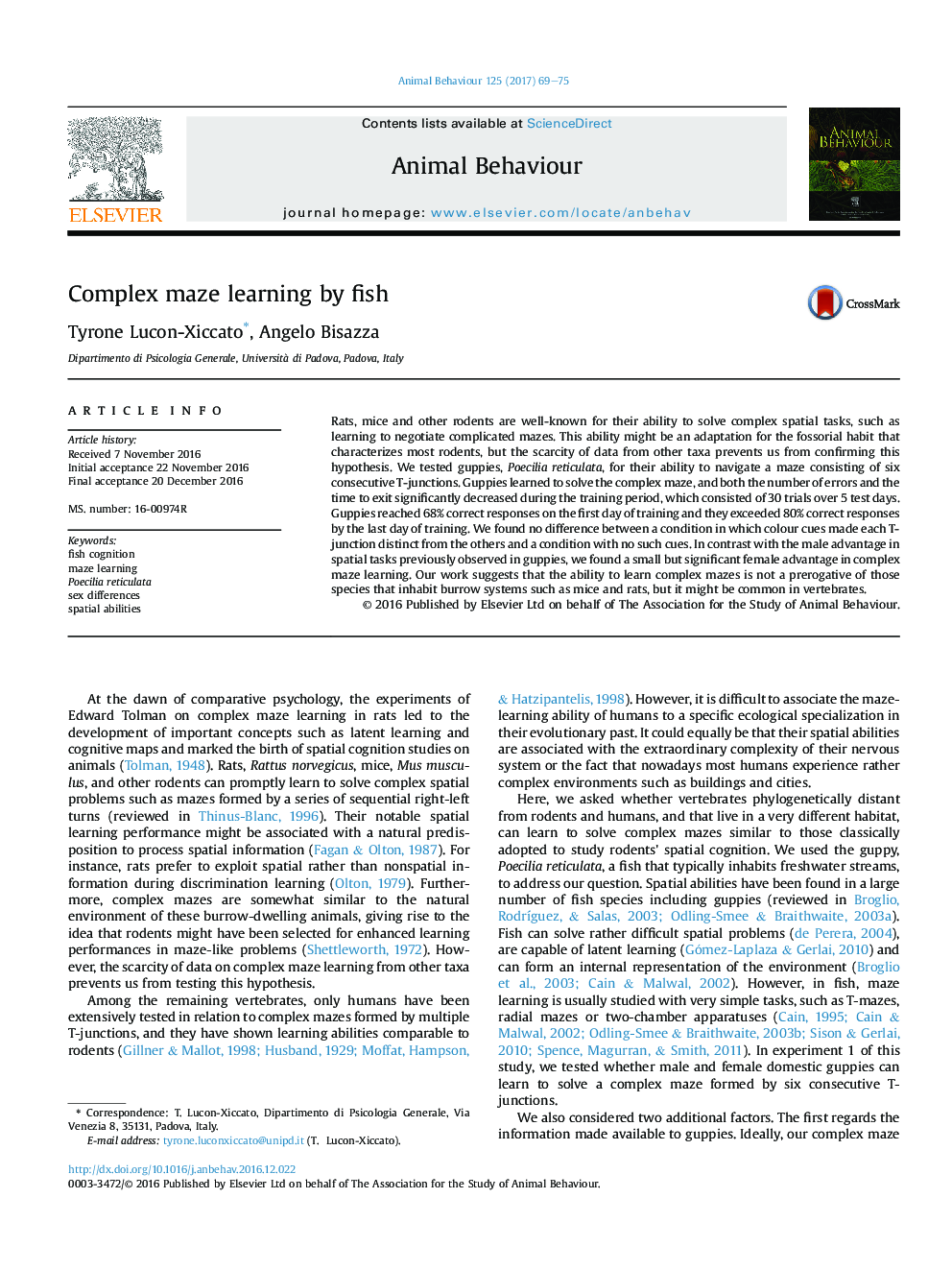| Article ID | Journal | Published Year | Pages | File Type |
|---|---|---|---|---|
| 5538552 | Animal Behaviour | 2017 | 7 Pages |
Abstract
Rats, mice and other rodents are well-known for their ability to solve complex spatial tasks, such as learning to negotiate complicated mazes. This ability might be an adaptation for the fossorial habit that characterizes most rodents, but the scarcity of data from other taxa prevents us from confirming this hypothesis. We tested guppies, Poecilia reticulata, for their ability to navigate a maze consisting of six consecutive T-junctions. Guppies learned to solve the complex maze, and both the number of errors and the time to exit significantly decreased during the training period, which consisted of 30 trials over 5 test days. Guppies reached 68% correct responses on the first day of training and they exceeded 80% correct responses by the last day of training. We found no difference between a condition in which colour cues made each T-junction distinct from the others and a condition with no such cues. In contrast with the male advantage in spatial tasks previously observed in guppies, we found a small but significant female advantage in complex maze learning. Our work suggests that the ability to learn complex mazes is not a prerogative of those species that inhabit burrow systems such as mice and rats, but it might be common in vertebrates.
Related Topics
Life Sciences
Agricultural and Biological Sciences
Animal Science and Zoology
Authors
Tyrone Lucon-Xiccato, Angelo Bisazza,
